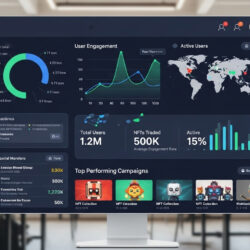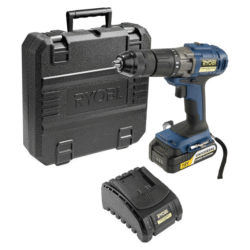Modern businesses thrive on speed, accuracy, and efficiency. Customers expect instant updates, real-time tracking, and error-free delivery. For many growing companies, NetSuite serves as the central ERP system, managing financials, inventory, and customer data. Meanwhile, ShipStation powers their order fulfillment and shipping processes. When these systems operate separately, teams waste time re-entering data, orders can slip through the cracks, and inventory records often fall behind. That’s where NetSuite ShipStation Integration becomes a game-changer, connecting the back-office operations of NetSuite with the shipping automation of ShipStation to deliver a single, unified workflow.
This integration not only improves visibility across systems but also drives faster fulfillment, fewer errors, and happier customers. Businesses that partner with experts like SixLakes Consulting can maximize the benefits of this integration by customizing it to their workflows, reducing costs, and achieving new levels of efficiency.
Understanding NetSuite ShipStation Integration
NetSuite ShipStation Integration creates a seamless flow of data between your ERP and your shipping software. NetSuite manages sales orders, customer information, product data, and inventory levels, while ShipStation automates label printing, carrier selection, and shipment tracking. By connecting these platforms, orders placed in NetSuite automatically appear in ShipStation for processing, and shipping details are sent back to NetSuite in real time.
This two-way communication eliminates manual data entry and ensures that every team, from warehouse operations to finance, has access to accurate, up-to-date information. It allows businesses to maintain one central source of truth for orders, fulfillment, and inventory.
Why Integration Between NetSuite and ShipStation Matters
Without integration, businesses face common challenges that slow down operations. Warehouse staff must manually export orders from NetSuite to ShipStation. Tracking numbers and shipping statuses must then be re-entered into NetSuite, creating room for human error. This fragmented process delays fulfillment, increases customer inquiries, and complicates financial reconciliation.
With NetSuite ShipStation Integration, all these issues disappear. Orders flow automatically from NetSuite to ShipStation, shipments sync back instantly, and inventory updates occur in real time. The integration also enables better reporting, accurate delivery estimates, and more efficient resource allocation. Ultimately, it allows businesses to serve their customers faster while reducing internal workload.
Core Features of NetSuite ShipStation Integration
NetSuite ShipStation Integration delivers a wide range of powerful features that optimize fulfillment and data accuracy:
-
Automated Order Transfer – Orders created in NetSuite automatically sync with ShipStation for immediate processing.
-
Real-Time Shipment Updates – Tracking numbers, carrier information, and shipping statuses are instantly sent back to NetSuite.
-
Inventory Synchronization – Inventory counts update automatically in both systems as items are shipped.
-
Carrier Rate Shopping – ShipStation compares shipping rates across carriers to select the most cost-effective option.
-
Custom Field Mapping – Businesses can map data fields according to their unique workflows and business rules.
-
Error Handling and Monitoring – Built-in error detection ensures that failed syncs are quickly identified and resolved.
Together, these features streamline the entire fulfillment cycle and create an environment of operational harmony between NetSuite and ShipStation.
Benefits of NetSuite ShipStation Integration
Integrating NetSuite and ShipStation yields both immediate and long-term business benefits:
-
Elimination of Manual Work – Data no longer needs to be re-entered, saving hours of labor and reducing the risk of human error.
-
Faster Fulfillment – Orders reach customers more quickly thanks to real-time data synchronization and automated workflows.
-
Accurate Inventory Management – Inventory levels in NetSuite always reflect what’s happening in your warehouse or shipping center.
-
Enhanced Customer Experience – Customers receive instant shipping notifications, accurate tracking updates, and faster deliveries.
-
Improved Financial Accuracy – Shipping costs, taxes, and carrier fees sync directly with NetSuite for precise accounting.
-
Better Decision-Making – Real-time data provides executives and managers with the insights needed to optimize performance and costs.
Businesses that adopt this integration experience a measurable increase in productivity and a significant reduction in order errors and fulfillment delays.
How NetSuite ShipStation Integration Works
The integration process establishes a secure, two-way connection between NetSuite and ShipStation using APIs.
-
Order Creation in NetSuite – When an order is placed through a sales channel or entered manually, it appears in NetSuite.
-
Automatic Sync to ShipStation – The integration pushes order details: items, quantities, customer data, and shipping preferences, to ShipStation.
-
Shipment Processing in ShipStation – ShipStation generates the shipping label, selects the carrier, and updates the order with tracking details.
-
Return Sync to NetSuite – Shipping data, including carrier name, cost, and tracking number, is sent back to NetSuite automatically.
-
Inventory and Financial Updates – NetSuite adjusts inventory levels and updates related accounting records.
This automated flow eliminates manual steps, ensures that data is consistent across both platforms, and keeps every department informed.
Use Cases Across Industries
NetSuite ShipStation Integration benefits a wide range of industries:
-
E-commerce and Retail – Sync online store orders directly to ShipStation for immediate fulfillment.
-
Wholesale and Distribution – Manage bulk shipments efficiently while maintaining inventory accuracy in NetSuite.
-
Manufacturing – Ship finished goods seamlessly while keeping real-time visibility into material stock levels.
-
Subscription Services – Automatically process recurring shipments with minimal manual input.
-
Third-Party Logistics (3PL) – Offer clients accurate, automated order tracking and inventory synchronization.
No matter the industry, integrating NetSuite with ShipStation ensures that fulfillment operations are faster, smarter, and more reliable.
Implementation Approach by SixLakes Consulting
Integrating two complex systems like NetSuite and ShipStation requires experience and precision. SixLakes Consulting specializes in custom integration services that align with each business’s unique workflows.
The implementation process typically involves:
-
Assessment and Planning – Understanding the client’s current systems, order volume, and integration goals.
-
Configuration and Mapping – Setting up field mappings and data flows between ShipStation and NetSuite.
-
Testing and Validation – Conducting test runs to ensure all data syncs accurately, including edge cases like partial shipments or returns.
-
Go-Live and Monitoring – Launching the integration and monitoring it to ensure stable performance.
-
Continuous Support – Providing maintenance, updates, and optimization as business requirements evolve.
SixLakes Consulting ensures that each integration is reliable, secure, and optimized for maximum efficiency.
Common Challenges and How to Overcome Them
Like any integration, challenges may arise, such as mismatched data fields, duplicate records, or API limitations. However, with expert oversight, these obstacles are easy to overcome. SixLakes Consulting addresses these issues by implementing error-handling workflows, mapping validation, and regular monitoring. They also configure automation rules to manage exceptions like split shipments or backorders, ensuring a seamless flow of information even under complex scenarios.
Why Choose SixLakes Consulting for Your Integration
SixLakes Consulting is a boutique NetSuite consulting and integration partner based in Austin, Texas. The firm focuses on helping small and mid-market businesses unlock the full potential of their ERP investments. Their team brings deep experience with NetSuite customization, workflow automation, and multi-platform integrations.
By partnering with SixLakes Consulting, businesses gain:
-
Tailored integration strategies aligned with business goals
-
Expertise in NetSuite architecture and API management
-
Proven experience with eCommerce and fulfillment workflows
-
Dedicated post-launch support and performance optimization
Their client-centric approach ensures that each integration delivers measurable improvements in efficiency and customer satisfaction.
Measuring Success and ROI
The success of NetSuite ShipStation Integration can be quantified through key performance indicators:
-
Reduced order processing time
-
Lower data entry errors
-
Faster shipping turnaround
-
Improved on-time delivery rates
-
Enhanced inventory accuracy
-
Reduced operational costs
These metrics provide a clear view of the integration’s impact on productivity and profitability. Businesses that implement this integration often see a return on investment within months due to reduced manual labor and improved customer retention.
The Future of NetSuite and ShipStation Integration
The future of fulfillment lies in automation, analytics, and AI-driven decision-making. As businesses scale, the demand for real-time integration between systems like NetSuite and ShipStation will only grow. Emerging trends include predictive inventory management, intelligent carrier selection, and AI-powered customer communication. Companies that invest in integration now are positioning themselves to stay competitive and agile in the years ahead.
SixLakes Consulting continues to lead the way in helping businesses adopt innovative, scalable integration solutions that evolve alongside technology.
Conclusion
NetSuite ShipStation Integration is the cornerstone of modern, automated fulfillment operations. By connecting NetSuite’s ERP capabilities with ShipStation’s shipping automation, businesses can eliminate manual tasks, reduce errors, and deliver faster, more accurate shipments. The result is a smoother workflow, better data visibility, and higher customer satisfaction.
With SixLakes Consulting as your trusted partner, the integration process becomes effortless, strategic, and tailored to your exact business needs. Whether you’re a growing eCommerce retailer or a large-scale distributor, this integration ensures that your operations remain efficient, connected, and ready for the future.
FAQs
What is NetSuite ShipStation Integration?
It’s the process of connecting NetSuite ERP with ShipStation’s shipping automation platform to synchronize orders, shipments, and inventory in real time.
How does the integration improve order fulfillment?
Orders are automatically transferred from NetSuite to ShipStation for processing, and shipment details sync back to NetSuite instantly, reducing delays and errors.
Can it handle large order volumes?
Yes. The integration is built to handle thousands of orders per day, making it suitable for high-volume eCommerce and wholesale operations.
Is customization possible?
Absolutely. SixLakes Consulting tailors the integration to match your specific workflows, data structures, and business logic.
What support is available after implementation?
SixLakes Consulting provides ongoing monitoring, troubleshooting, and optimization to ensure long-term integration stability.
Why choose SixLakes Consulting?
Because they combine technical expertise with business insight, they deliver reliable integrations that enhance efficiency and scalability.





